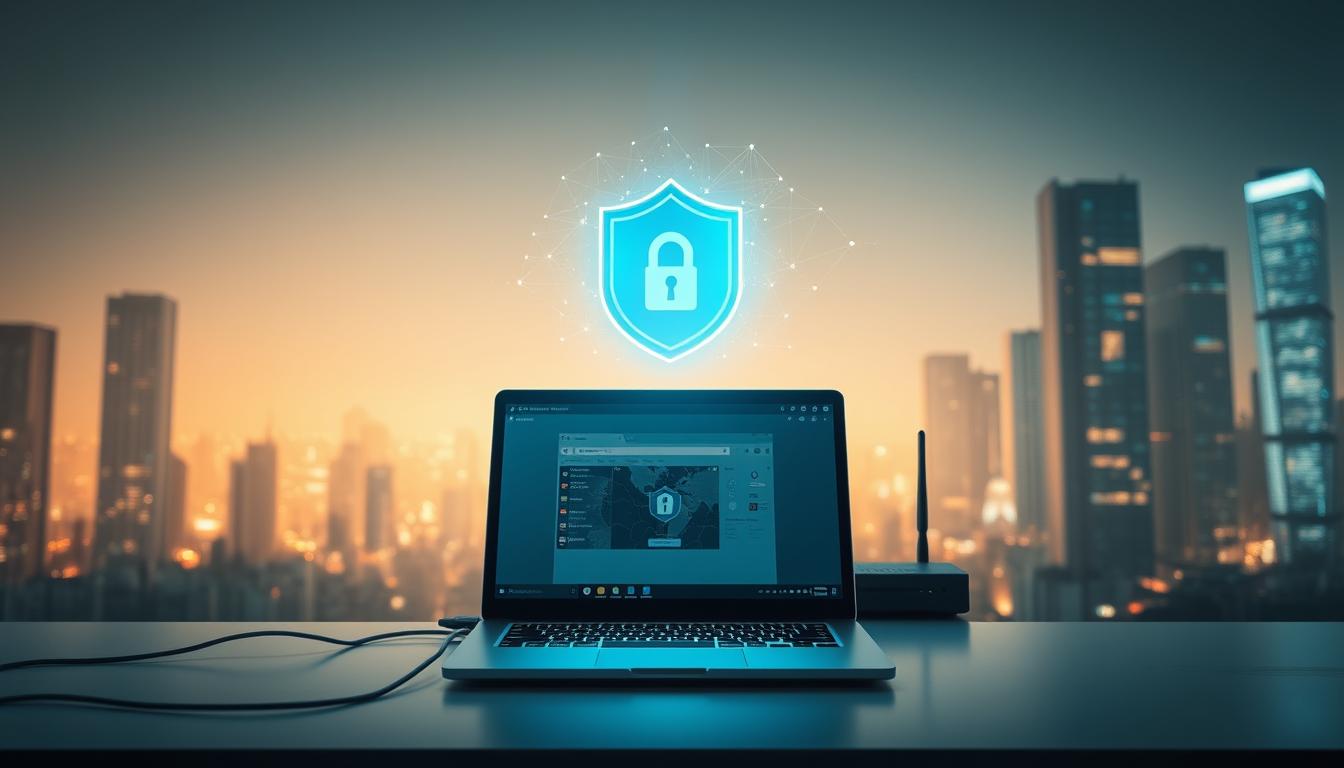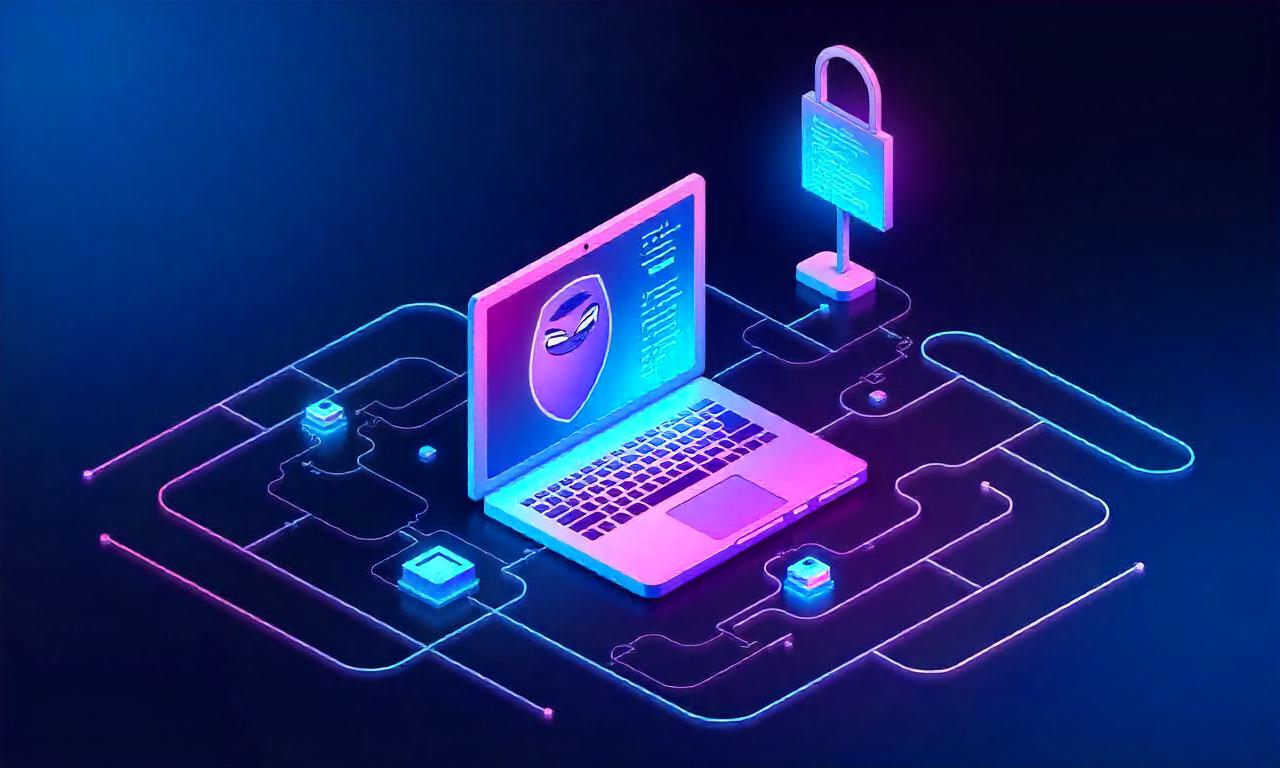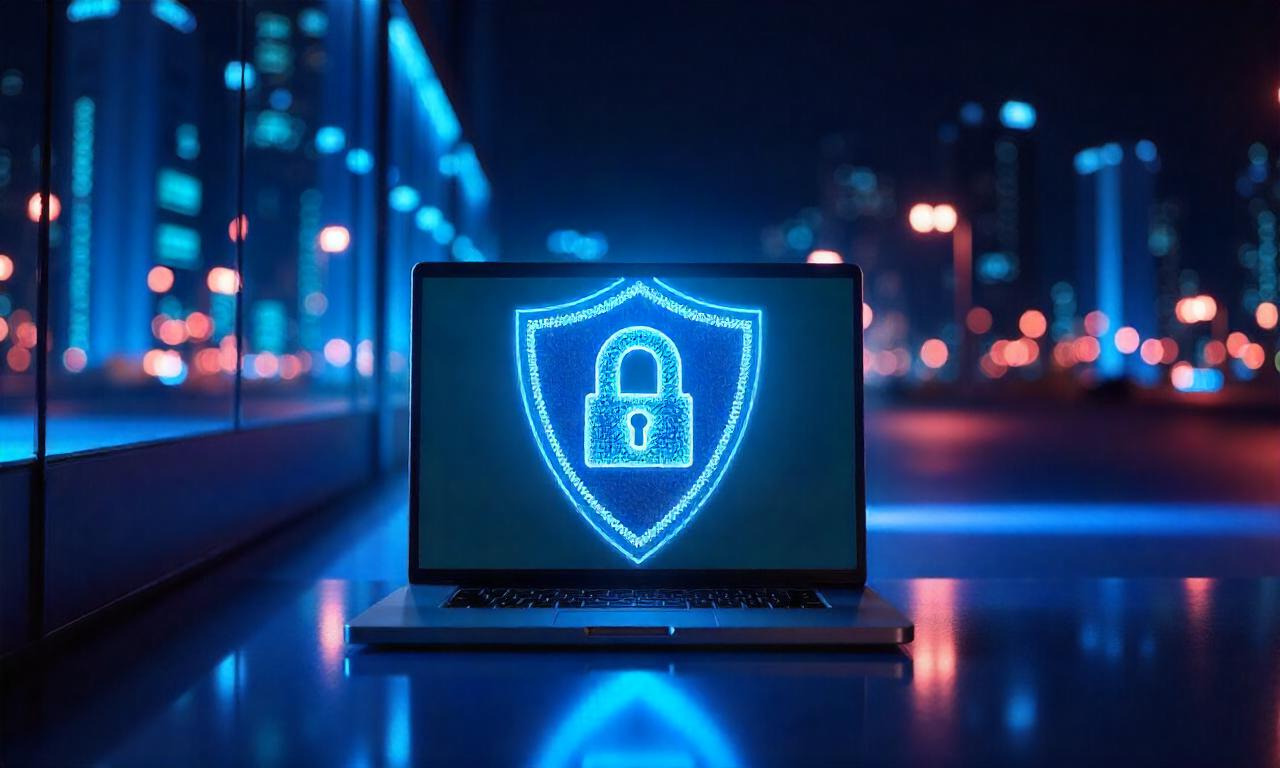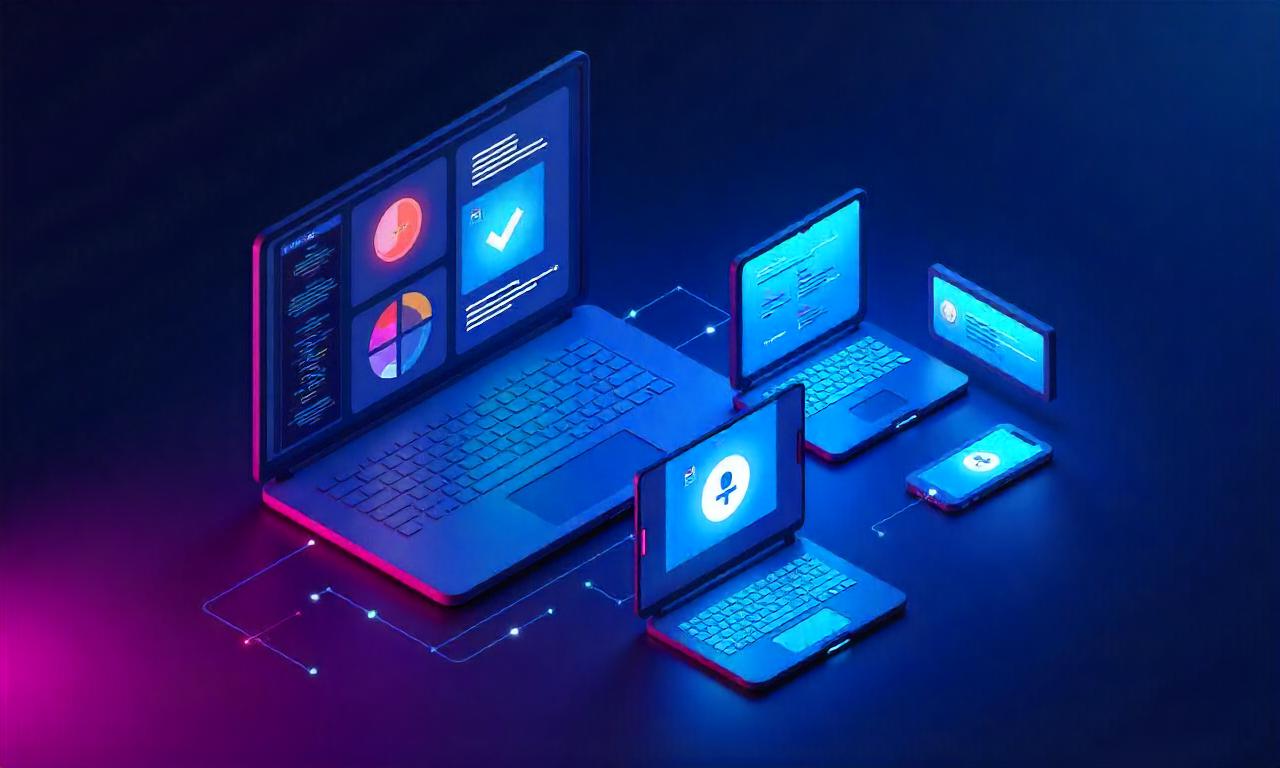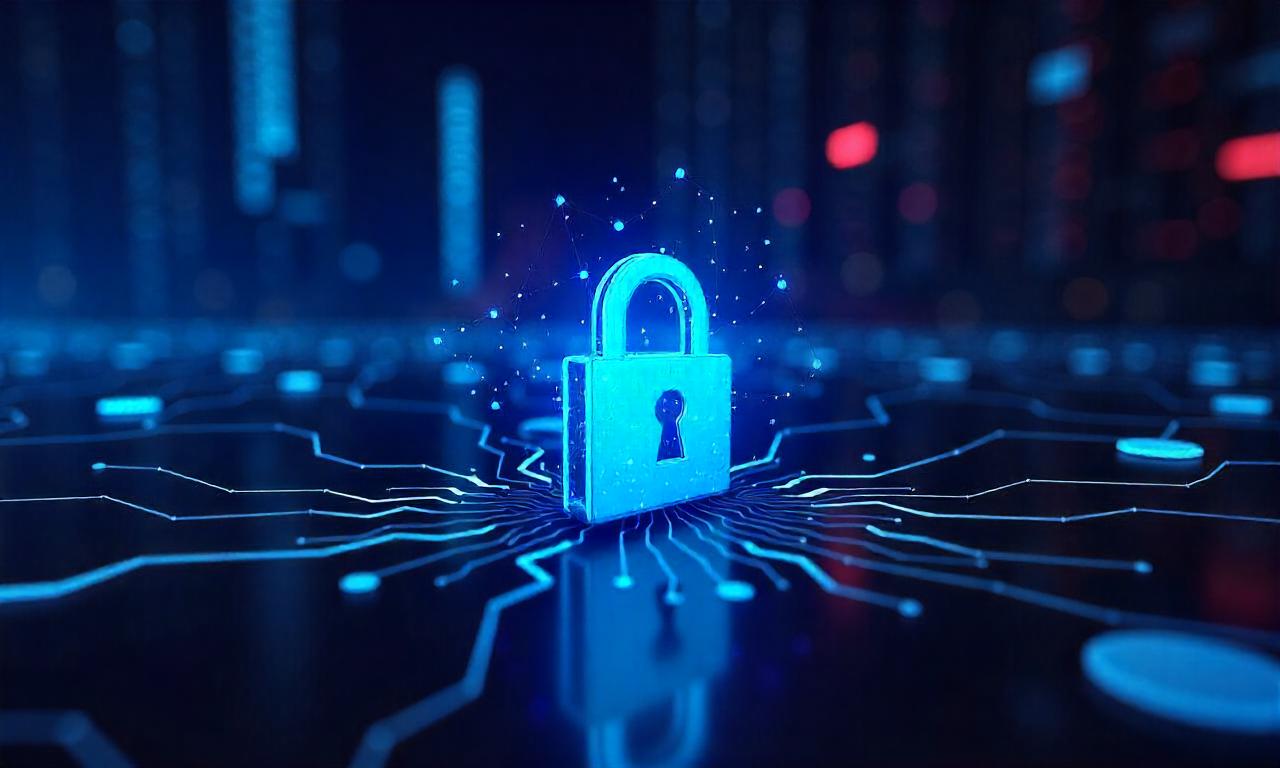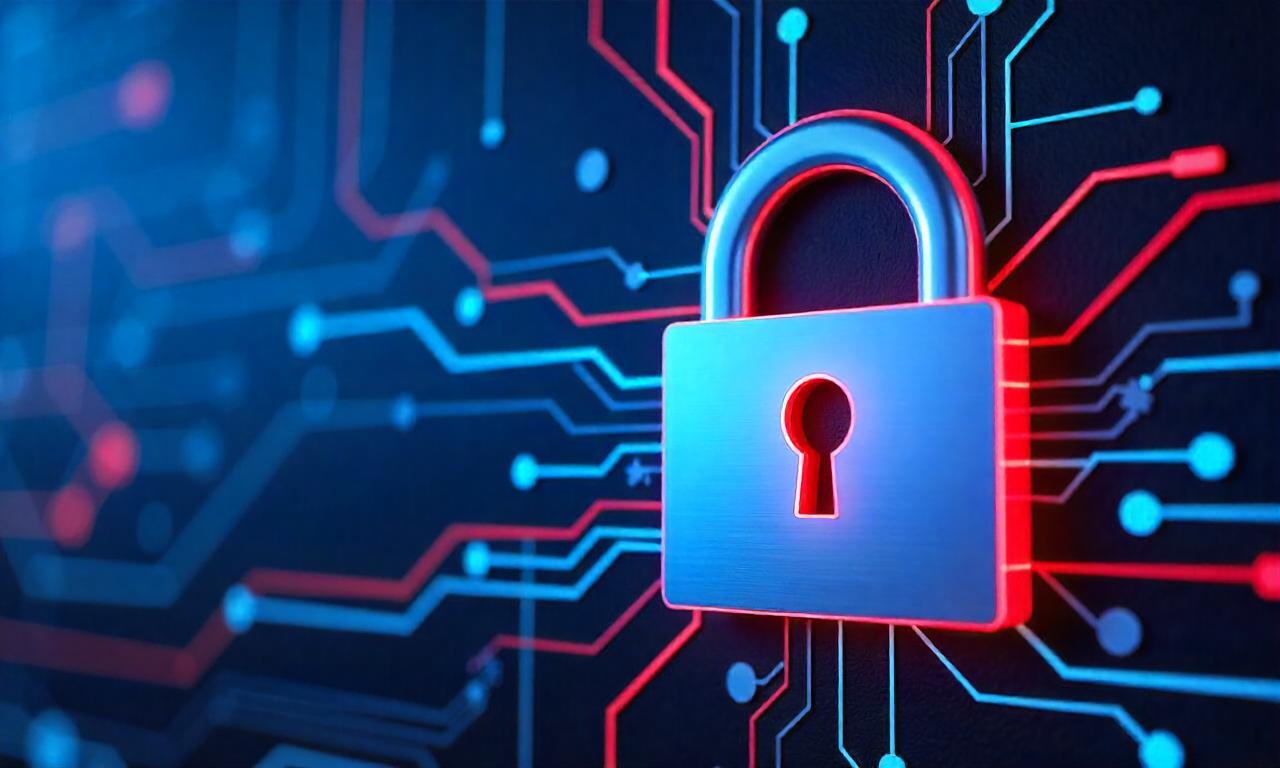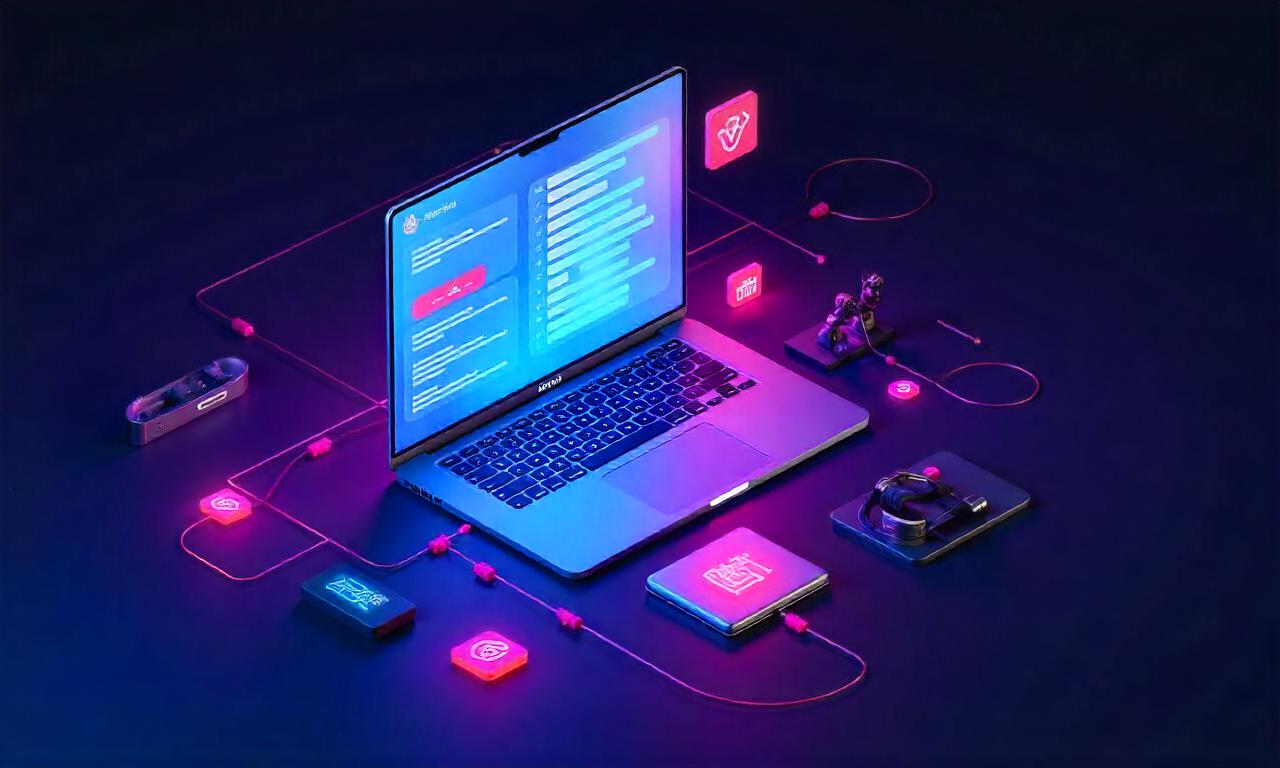Have you ever wondered how much of your personal info is online? It’s easy for anyone to find if they try hard enough.
In today’s world, keeping your online security and digital identity safe is key. Whether you’re browsing or shopping online, the internet plays a big role in our lives. It’s important to understand why privacy matters so much.
Table of Contents
ToggleKey Takeaways
- The importance of internet privacy extends beyond just protecting personal information.
- Online security is vital for a safe digital space.
- Ignoring digital identity protection can lead to big problems.
- Knowing about privacy helps us make better choices online.
- Being aware of privacy issues makes us more careful every day.
- Putting privacy first can stop serious personal and financial issues later.
Introduction to Internet Privacy
Understanding internet privacy is key for anyone online today. Our personal data can be easily lost. This happens from social media to online shopping, leaving a trail of digital footprints.
Every action online builds our digital identity. It’s easy to think our actions are private. But, the truth is far from it. Bad actors can find and misuse our data.
Many don’t know how their data is used online. This shows why privacy matters. Learning about internet privacy helps us protect our data better.
Keeping our data safe is vital in our digital world. Knowing the risks helps us protect our online presence. This way, our data stays private and safe.
The Risks of Ignoring Internet Privacy
Ignoring internet privacy can lead to serious problems. These issues might not be obvious at first. It’s important to understand these risks to protect our personal and financial info. This way, we can feel safe in our connected world.
Data Breaches
Data breaches are a big risk when we ignore internet privacy. These breaches allow unauthorized data access. This means hackers can get our sensitive info. Companies like Equifax and Target have faced huge breaches, leaking millions of users’ data.
The effects of these breaches can spread far. They can trigger a chain of cybersecurity threats.
Identity Theft
When our personal info is stolen, identity fraud becomes a big problem. Hackers can use our data to pretend to be us. They might apply for credit cards, loans, or even government benefits in our name.
Fixing identity theft can take a lot of time and effort. It’s not just people who are at risk. Businesses that hold customer data are also vulnerable.
Financial Loss
Ignoring internet privacy can also lead to financial loss. Cybercriminals target weak spots in security to steal money. They can drain bank accounts or ruin credit ratings.
Businesses might face big financial penalties and lawsuits. This can hurt their reputation and profits.
- Protect your data to prevent unauthorized access.
- Stay vigilant against possible identity fraud.
- Use strong cybersecurity to avoid financial risks.
How Personal Data is Collected Online
Online, personal data collection happens in many ways, often without us noticing. Our digital footprint grows with every web page we visit. Websites use cookies and pixels to track our habits, building a detailed picture of our online lives.
But there’s more to it than meets the eye. Big companies and websites use complex algorithms to watch our every move. They collect data from forms, social media, and even how we use our mouse and screens.
Online surveillance is another big issue. Governments and some groups use tools to keep an eye on us. They might intercept messages, track our location, and watch our online actions. While it’s meant to keep us safe, it also raises big privacy and freedom concerns.
The effects of these methods are huge. They impact everything from ads we see to the security of our data. Knowing how our data is collected helps us protect our privacy and manage our digital footprint better.
Why You Should Care About Internet Privacy
Data privacy is key in our digital world but often ignored until it’s too late. In today’s connected age, keeping our personal info safe is more important than ever. By taking steps to protect our online privacy, we can stop our data from being misused.
Control Over Personal Information
Control over personal info means deciding who sees our data and how it’s used. This control helps us avoid unwanted messages and data misuse. Knowing what data we share and with whom is a big part of personal info ownership.
Social media and online services collect a lot of our personal data. Knowing their privacy policies and setting privacy controls helps keep our data safe. This control is key to protecting our identities and feeling secure online.

Preventing Misuse of Data
Stopping data misuse is key to avoiding identity theft and fraud. With more cyber-attacks, protecting our data is more critical than ever. Using strong passwords and encryption helps keep our info safe from wrong hands.
Being careful about where our data is stored or processed also helps. Regularly checking our digital presence, staying updated on data breaches, and acting fast to fix vulnerabilities are all part of good data privacy practices.
Caring about internet privacy gives us peace of mind, knowing our personal info is safe. Strong data privacy practices build trust in digital spaces, making the internet safer for all.
The Role of Government and Corporations
In the world of internet privacy, governments and companies play a big role. Governments around the world have made privacy policies to control how personal data is handled. For example, the General Data Protection Regulation (GDPR) in Europe sets high standards for regulatory compliance.
Companies like Google and Facebook have a big say in how our data is used. Their corporate responsibility towards our data is always being checked. Businesses must follow privacy policies to avoid legal trouble. But, they also need to be open and earn our trust.
They must invest in strong cybersecurity and fair data use. This way, they meet regulatory compliance and do their part in corporate responsibility.
For internet privacy to be safe, governments and companies need to work together. By making strong privacy policies and following regulatory compliance, they can create a safer digital space. This shows how important it is for them to protect our data together.
How to Protect Your Internet Privacy
In today’s world, keeping your online activities private is key. Using online privacy tools and staying safe online is vital for a secure web experience.
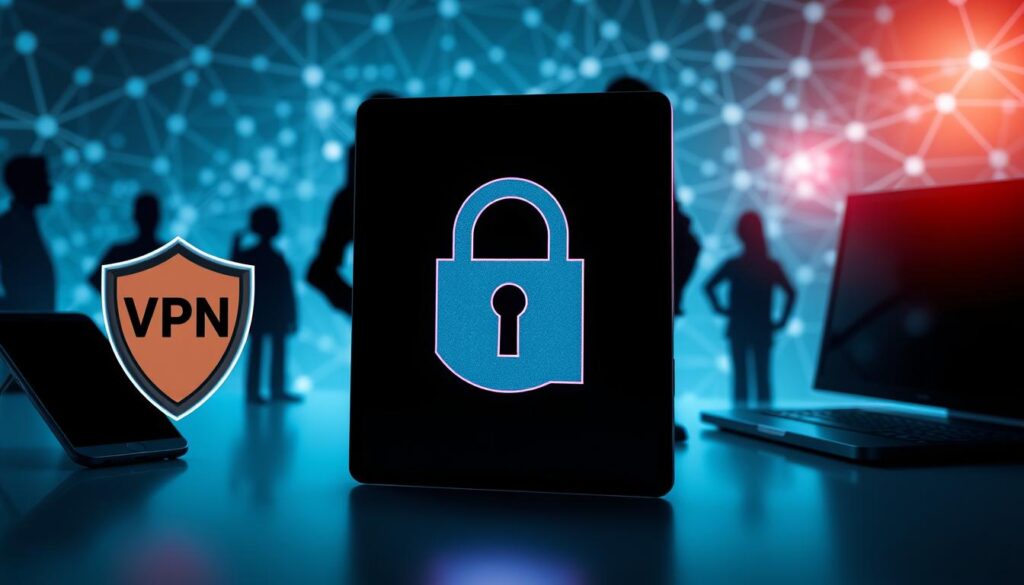
Use of VPNs
Virtual Private Networks (VPNs) are a top choice for secure browsing. They hide your IP address and keep your data safe. Services like NordVPN and ExpressVPN are great for this.
Strong Password Practices
Strong passwords are your first defense against hackers. Use a mix of letters, numbers, and symbols. Tools like LastPass and Dashlane help manage your passwords. Change them often and avoid easy-to-guess words.
Two-Factor Authentication
Two-factor authentication (2FA) adds a big security boost. It asks for a password and something only you have, like a token. Google and Microsoft offer 2FA to protect your accounts.
By using VPNs, strong passwords, and 2FA, you get top-notch protection. Adding these to other online privacy tools makes your browsing safer.
The Impact of Social Media on Privacy
Social networks are a big part of our lives today. But, they also raise serious privacy concerns. Many people don’t change their privacy settings on these sites. This can put their personal info at risk.
A big danger of social media is oversharing online. When we share too much, we open ourselves up to cyber threats. For example, sharing where we are or our daily plans can attract unwanted attention.
Even though social sites have lots of privacy options, many users don’t know how to use them. Sites like Facebook, Twitter, and Instagram have tools to control who sees our stuff. But, if we don’t use them, our data can be at risk.
To stay safe, it’s important to check and update our privacy settings often. Being careful about what we share can help avoid privacy issues. So, while social media is great for connecting, keeping our privacy in mind is key.
Case Studies on Internet Privacy Violations
In today’s digital world, it’s key to understand the effects of internet privacy breaches. By looking at famous cases, we learn how serious these issues are. We see the harm caused by data theft and the lessons in cybersecurity.

Famous Data Breaches
The 2017 Equifax hack is a major example of a security breach. It exposed data of about 147 million people, putting their info at risk. The Yahoo breaches from 2013 to 2014 also had a big impact, affecting about 3 billion accounts.
Impact on Individuals
Data theft can really hurt people. Victims often face identity theft, financial loss, and emotional stress. In the Equifax case, many saw fraudulent charges and had to work hard to protect their identities.
Lessons Learned
These cases teach us important cybersecurity lessons. Companies need to focus on strong security, like keeping software up to date and training employees. It’s cheaper to prevent breaches than to fix them after they happen.
Equifax’s slow response and lack of openness show why it’s vital to act fast and be clear with those affected.
| Case Study | Number of Accounts Affected | Consequences |
|---|---|---|
| Equifax 2017 | 147 million | Identity theft, financial losses |
| Yahoo 2013-2014 | 3 billion | Compromised personal data, loss of trust |
The Future of Internet Privacy
The world of internet privacy is always changing. It’s shaped by new privacy worries, fast tech progress, and a need for openness. As someone who uses digital platforms a lot, I see key trends that will change internet privacy.
First off, evolving privacy concerns are a big deal. More and more personal data is shared online every day. It’s up to us to keep up and know about new dangers. This is why digital ethics is so important.
Looking ahead, digital ethics will play a bigger role. It will guide how companies handle our personal data. This change will affect company rules and laws worldwide. Governments and groups will work together to make sure data is safe and innovation keeps going.
Another big topic will be future data protection. New tech like AI, blockchain, and quantum computing offer both chances and risks for privacy. They could make security better but also raise questions about watching and controlling data.
In short, keeping up with evolving privacy concerns, following digital ethics, and having strong future data protection plans are key. By tackling these areas, we can keep the internet safe and secure for everyone.
Resources for Protecting Your Online Privacy
Protecting your online privacy is key. This section lists educational websites and tools to help. You’ll find privacy education, data protection software, and privacy-enhancing technologies to keep your online activities safe.
Educational Websites
There are many trusted sites for learning about online privacy. They cover security measures and the latest privacy technologies.
- Electronic Frontier Foundation (EFF) – Offers extensive resources on online privacy, digital rights, and practical advice for increasing personal security.
- Privacy Rights Clearinghouse (PRC) – Provides a wealth of educational materials to help users understand their privacy rights and how to protect their personal information.
- Khan Academy – Features courses and tutorials on internet safety and privacy education tailored for a wide audience.
Privacy Tools and Software
Privacy tools and software can greatly improve your online security. Here are some top picks:
| Tool/Software | Description | Key Features |
|---|---|---|
| NordVPN | A leading virtual private network (VPN) service that encrypts internet connections and masks IP addresses. | Robust encryption, no-logs policy, global servers |
| DuckDuckGo | A privacy-focused search engine that does not track users’ search history or personal information. | Anonymous browsing, built-in tracker blocking, private search |
| Signal | A secure messaging app known for its end-to-end encryption, ensuring only the communicating users can read the messages. | Encrypted messaging, disappearing messages, open-source |
| Bitdefender | A complete antivirus and security suite that offers data protection through advanced privacy-enhancing technologies. | Real-time protection, anti-phishing, VPN services |
| CCleaner | Data protection software that helps remove unnecessary files and tracking cookies to enhance privacy and performance. | Privacy cleaner, system optimizer, file recovery |
By using these educational resources and privacy tools, you can protect your online activities. This ensures your privacy and security online.
Conclusion
As we explore the vast digital world, keeping our online privacy safe is more important than ever. We’ve looked at how privacy works online, the dangers, and how to stay safe. We’ve learned about data collection, the roles of governments and companies, and social media’s impact.
Being careful online is key. We can use VPNs, strong passwords, and two-factor authentication to protect ourselves. Looking at data breaches teaches us the importance of these steps.
In my final thoughts, protecting our online privacy is essential. It takes all of us working together to keep the internet safe. By staying informed and using the right tools, we can make the internet a safer place. Let’s act now to protect our digital lives in this changing world.
FAQ
What is internet privacy and why is it important?
Internet privacy means keeping your personal info safe online. It’s key because it guards your identity, money details, and personal data from hackers.
How is my personal data collected online?
Your data is gathered through browsing, cookies, and social media. Websites and companies use it to better their services and ads. Sometimes, they misuse it.
What are some common risks of ignoring internet privacy?
Not caring about privacy can lead to data theft and financial loss. Hackers can get your personal info and use it wrongly.
How can I maintain control over my personal information?
Keep your info safe by knowing your social media settings and being careful online. Use VPNs and strong passwords to protect your data.
What role do governments and corporations play in internet privacy?
Governments and companies shape privacy through laws and policies. These rules dictate how your data is handled.
What steps can I take to protect my internet privacy?
To stay private, use VPNs, create strong passwords, and enable two-factor authentication. These steps add security to your online activities.
How does social media impact my privacy?
Social media can harm your privacy by sharing too much and having weak settings. Always check and update your privacy settings to keep your info safe.
Can you give examples of famous data breaches?
Yes, big breaches include Yahoo, Equifax, and Facebook-Cambridge Analytica. These cases showed how millions of users’ data can be stolen.
What have we learned from past internet privacy violations?
We’ve learned the need for better security, stricter laws, and personal responsibility online. These lessons show us how to protect our data better.
What does the future of internet privacy look like?
The future will bring better security, stronger laws, and ethical data use. As tech advances, so will our ways to keep data safe.
Where can I find resources to protect my online privacy?
For privacy help, check out EFF, Ghostery, and Norton Privacy Manager. These tools and sites offer tips and solutions to keep you safe online.

